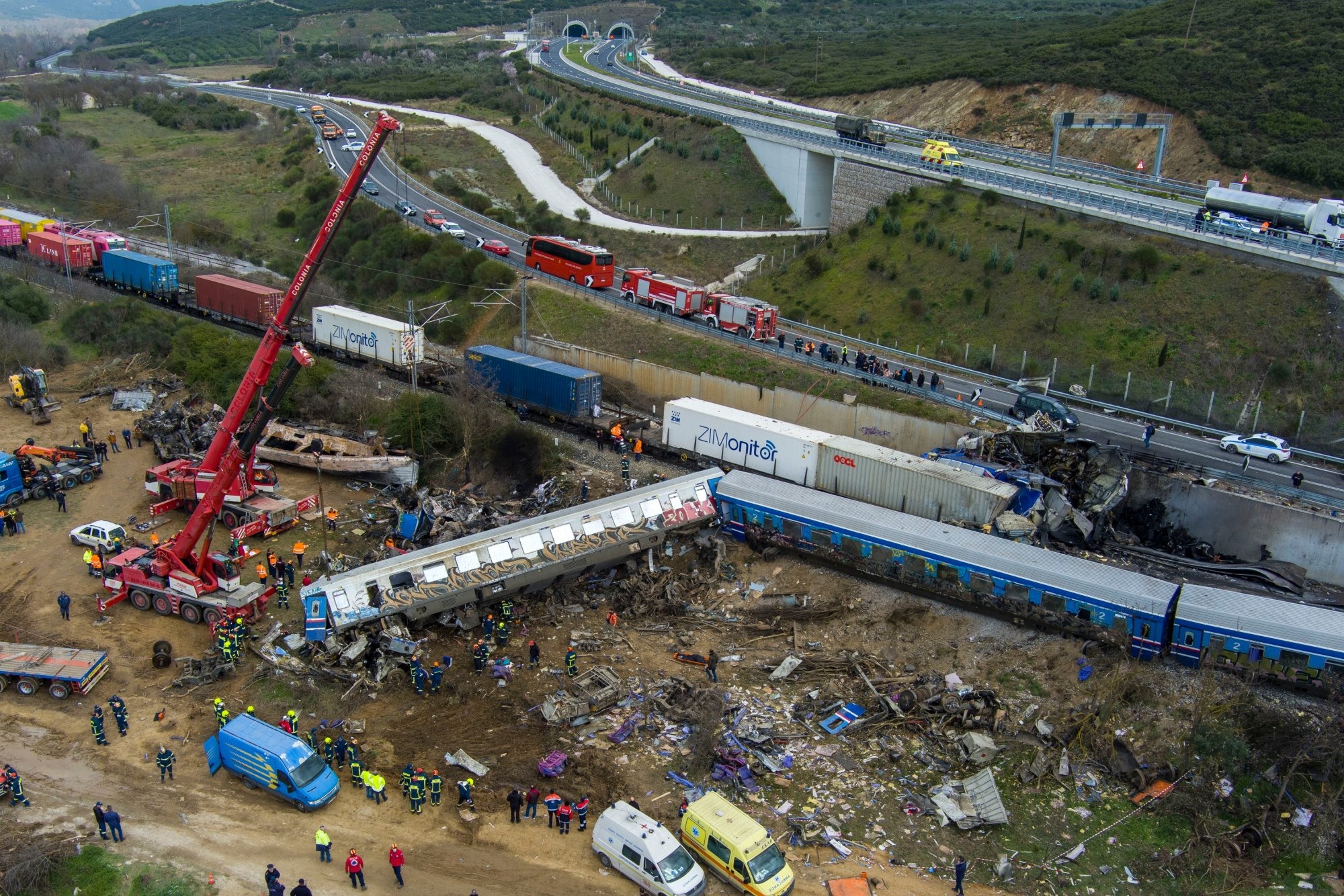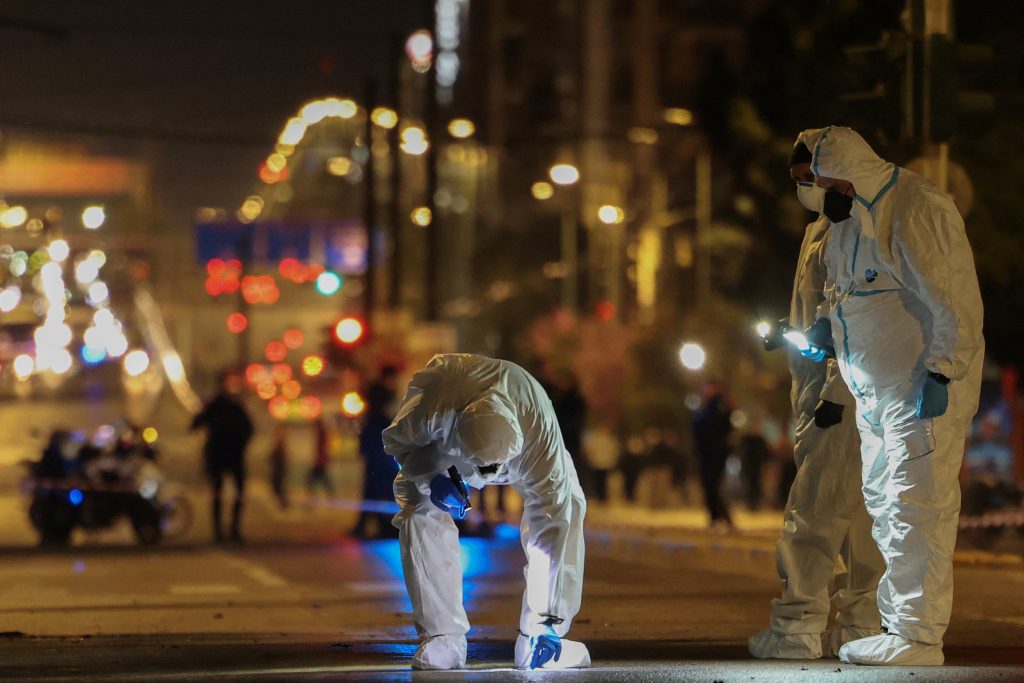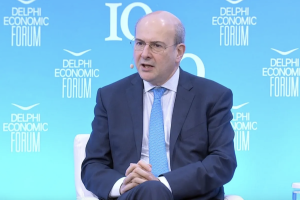The government spokesman on Thursday said an off-the-agenda debate into the Tempi rail disaster will be held in Parliament on March 5, while deliberations will begin a day earlier over the establishment of a Parliamentary committee of inquiry to review any potential responsibility – during the initial salvage operation – of a recently resigned deputy minister.
The two-train collision on the evening of Feb. 28, 2023, claimed the lives of 57 people, mostly passengers on a north-bound passenger train that crashed into an oncoming north-bound freight train. Both were operated by the private company Hellenic Train, a subsidiary of Italy’s FS. The rail network in Greece is managed and maintained by the state-run Hellenic Railways Organization (OSE).
Main opposition PASOK party has requested a Parliamentary review and possible Parliament debate into the actions of former deputy minister of state Christos Triantopoulos, who at the time of the deadly rail accident was involved in the state apparatus’ response to the unprecedented rail disaster.
Triantopoulos, a deputy elected with ruling New Democracy (ND) party from the central mainland Magnesia prefecture, this month resigned as deputy minister of climate change and civil protection.
Critics, mostly from the political opposition, family members of victims and a portion of the press, have vociferously claimed that a narrow strip of land adjacent to the railroad lines (on the west or left side) was hastily leveled and covered over with gravel, thus resulting in the possible destruction of evidence and victims’ remains.
At the same time, however, the specific area was where truck or boom cranes were quickly positioned to lift and remove the demolished locomotives and wagons from atop and besides the tracks. The urgency cited at the time was to get the rail lines back into operation as soon as possible. Only one side, where the cranes operated, was leveled and made more stable, the rest of the disaster scene was left to investigators and first responders.
The evidence cited in this instance would be presumed trace elements of an illegal cargo allegedly carried on the freight train. This scenario holds that the cargo was a clandestine shipment of solvents for use in adulterating fuels – substances transported by train instead of the usual smuggling method in such cases in Greece, i.e. using specially fitted tanker trucks or via numerous large plastic containers loaded onto semi-trailers lorries in order to go from point A to B in a more undetected manner.
The Tempi tragedy has remained in the national limelight over the past two years, with the political opposition and a large segment of the public opinion pointing to a government “cover-up” over various aspects of the disaster. One of the more prominent scenarios holds that the oft-cited illegal cargo ignited upon impact and caused a “fireball”, as seen on a few seconds of grainy video, as well as related fires that erupted after the collision.
However, two recently released videos taken from CCTV cameras inside the south-bound rail tunnels apparently show nothing out of the ordinary aboard the freight train, with the first three open carriages pulled behind the two locomotives, in fact, shown loaded with sheet metal. Conversely, experts hired by some of the victims’ families have raised questions over the veracity of the video footage, while also maintaining that the contraband theory cannot be ruled out even in the face of the video footage. The issue of how and why the contracted security company retrieved the video footage after two years also continues to churn the domestic “conspiracy mill”.
A handful of opinion polls in the country over the past month have shown that a majority of respondents believe a “cover-up” cloaks the Tempi crash, while similarly, a majority also mistrusts the country’s independent judiciary. At the same time, a majority of respondents believe the political opposition – from far left to ultra-right – is “instrumentalizing” the tragedy.
Indicative of the media attention – which is also fueled by social media – revolving around the Tempi case is the fact that the disappearance and death of a 39-year-old man has come under intense scrutiny as possibly being linked to the deadly accident – which far-right and leftist politicians call a “crime”. The man was the son of the head of the Larissa appellate prosecutor’s office, meaning the latter held a supervisory position over the actual prosecutors assigned to the closely watched judicial investigation. The same top prosecutor also supervised judicial magistrates and prosecutors assigned other high-profile investigations in her jurisdiction as well. The woman has since requested a leave of absence after the body of her son was discovered badly decomposed in a remote rural area due north of the city of Larissa.
In announcing the off-the-agenda debate and prospect of another Parliamentary committee of inquiry, a visibly indignant Pavlos Marinakis, the government spokesman, shot back at the fractured political opposition, charging that “…there must be a limit to this vulgarity; we need this as a country and it’s our duty. We’ll no longer allow the opposition to blame everyone, we’ll respond to every indirect slander.”

Government spokesman Pavlos Marinakis during a previous Parliament debate.
In referring to the discovery of the body of the high-ranking prosecutor’s son, Marinakis said a tragic death cannot be linked to a tragic accident that is under investigation, while he described those who link the two cases, either through social media posts or as “questions” in Parliament, as “vulgar mudslingers”.
The debate is expected to be held at the political leaders’ level, meaning that the prime minister will address the plenary session.



